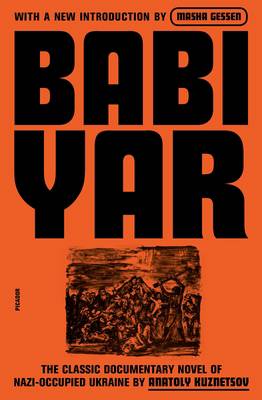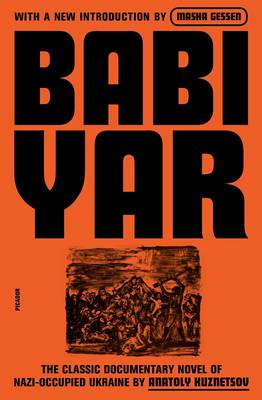
- Afhalen na 1 uur in een winkel met voorraad
- Gratis thuislevering in België vanaf € 30
- Ruim aanbod met 7 miljoen producten
- Afhalen na 1 uur in een winkel met voorraad
- Gratis thuislevering in België vanaf € 30
- Ruim aanbod met 7 miljoen producten
Zoeken
Babi Yar
A Document in the Form of a Novel; New, Complete, Uncensored Version
Anatoly Kuznetsov, A Anatoli
Paperback | Engels
€ 27,95
+ 55 punten
Omschrijving
"[A] masterpiece . . . Babi Yar [is] every bit the peer of the canonical works of witness [such as] Anne Frank's diary . . . Wiesel's Night . . . Solzhenityn's Gulag Archipelago." --George Packer, The Atlantic
An internationally acclaimed documentary novel that describes the fateful collision of Russia, Ukraine, and Nazi Germany, and one of the largest mass executions of the Holocaust, with a new introduction by Masha Gessen.
Specificaties
Betrokkenen
- Auteur(s):
- Uitgeverij:
Inhoud
- Aantal bladzijden:
- 496
- Taal:
- Engels
Eigenschappen
- Productcode (EAN):
- 9781250883834
- Verschijningsdatum:
- 28/02/2023
- Uitvoering:
- Paperback
- Formaat:
- Trade paperback (VS)
- Afmetingen:
- 135 mm x 206 mm
- Gewicht:
- 362 g

Alleen bij Standaard Boekhandel
+ 55 punten op je klantenkaart van Standaard Boekhandel
Beoordelingen
We publiceren alleen reviews die voldoen aan de voorwaarden voor reviews. Bekijk onze voorwaarden voor reviews.











